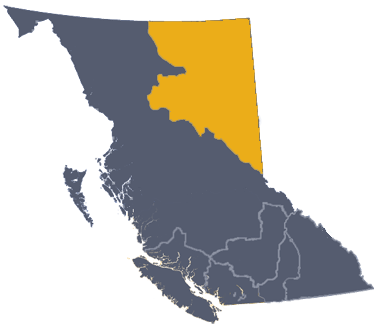Peace - Overview
This distinct landscape features high, prairie-like flatlands. While most of the Peace is sparsely populated, direct rail routes provide access to both North American markets and to the Prince Rupert international seaport.
Growing conditions
With a vast territory ranging from mountainous to flat, temperatures vary widely across the Peace. Long summer days provide ample sunlight. Soil can easily be eroded by water and be acidic in some areas, requiring modern tillage and crop rotation techniques.
Crops, livestock and food processing
Major commodities include beef, canola, forage seed, and grains such as wheat and barley. Farms located along river valleys also produce field crops that grow well in shorter seasons, like root vegetables, peas, cabbage and sweet corn. Other significant sectors in the Peace include honey, horses, hogs, dairy, and bison and other game.
Local Peace information
Find out more specific information about the Peace agricultural region:
Regional agrologist
Brenna Schilds
Phone: 250-795-4101
Email: Brenna.Schilds@gov.bc.ca
Rayman Liu
Phone: 250-787-6114
Email: Rayman.Liu@gov.bc.ca
Resources
The ministry has developed regional guides as a resource for producers, on-the ground researchers, and consultants to reflect on the climate issues challenging environmental sustainability and local farm businesses and food production.

The Peace region includes the Peace River Regional District and the Northern Rockies Regional Municipality.
